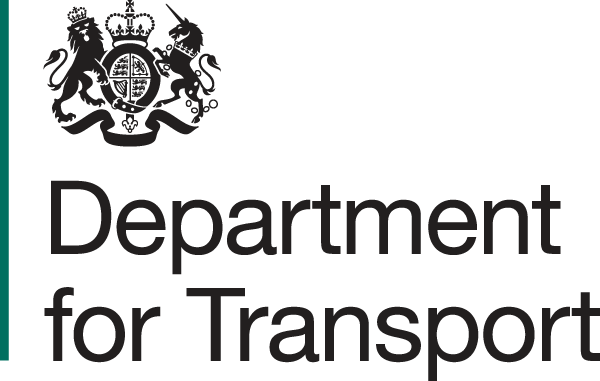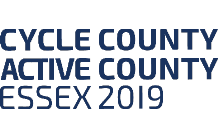Optional social ride and walk- 4 September 2019 |
|||||||
18:30 |
Outside Lord Ashcroft Building |
|
|||||
Pre-Conference social ride or walkRIDE: 3.5 mile ride from Anglia Ruskin University to The Rose and Crown Pub in Writtle. WALK: 2 mile walk from ARU to Chelmsford City Centre, Cathedral, new shopping area to Moulsham Street pubs. See "View Social Ride" for more information on both |
|||||||
Programme 1st Day - 5 September 2019A PDF map of the campus can be downloaded from HERE
|
|||||||
09:30 |
Michael Salmon Building Foyer |
|||
Delegate Registration Cloakroom facilities are available in room Michael Salmon 010 and cycle parking is provided outside. |
||||
10:00 |
Michael Salmon Lecture Theatre - SAL001 |
|||
Chair: Esther Kurland, Director, Urban Design London Keynote addressStephen Fidler, Director of Local Transport, Department for Transport, and Rupert Furness, Deputy Director, Active and Accessible Travel, Department for Transport Followed by Q+A session Morning plenary: more active, more oftenKevin Bentley, Deputy Leader and Cabinet Member for Infrastructure, Essex County Council Tim Hollingsworth, Chief Executive, Sport England Sílvia Casorrán, Cycling lead, Sustainable Mobility, Barcelona Metropolitan Area Mac Ferrari-Guy, Founder, Bikestormz Nation Followed by Q+A session
|
||||
11:30 |
Mildmay Sports Hall - Exhibition Area |
|||
Tea & Coffee served in the main exhibition area |
||||
12:10 |
Michael Salmon Lecture Theatre - SAL001 |
Michael Salmon - SAL004 |
Lord Ashcroft 221 - MAB221 |
Lord Ashcroft - MAB211 |
|||||||
New thinking in design and engineering workshopFacilitator: Adrian Lord Presentations from: LTN 2/08 Cycle Infrastructure Design: the new guidance Discussion to focus on:
|
Building the evidence base: toolkits for data, analysis and evaluationA session exploring the latest toolkits used in creating a walking and cycling evidence base Chair: Chris Bristow, COO, BetterPoints Walking, cycling and horse-riding Capital Investment Framework Tracking cycle trips and safety using an interactive GIS platform DfT Active Mode Appraisal Toolkit (AMAT)
|
Streets for all: accessibility and inclusivityChair: Dr Robert Davis, Chair, Road Danger Reduction Forum A session exploring how to make active travel more attractive and accessible to more people Equal Streets: a closer look at walking, cycling and inclusivity Bus Stop Connectivity Project: auditing access to bus stops in Scotland Cycling through the years - breaking down the age barriers Accessibility & inclusivity in bike share |
Moving active travel up the political agendaA campaigning & advocacy workshop As local authorities deliver LCWIPs, this session will explore how local people, community groups and campaigners are working with local government and practitioners to make active travel a local priority Facilitator, Roger Geffen, Cycling UK
With participants from local authorities and advocacy groups in England and local groups, including Colchester Cycling Charter, Walk Colchester, Thorndon Cycle Centre, Cycle Brentwood and Wivenhoe Bike Kitchen
|
||||||||
Marconi Building - MAR001 |
Marconi Building - MAR010 |
Marconi Building - MAR011 |
|
||||||||
Prioritising walkingChair: Jason Fergus, Director, Active Essex Designing walkable neighbourhoods Designing in walking networks to new communities Fixing the Link, Colchester Collaborative design with Transport for London to boost walking
|
Mobycon MasterclassFacilitated by Johan Diepens & Eveline De Jong Building for Bikes: The Dutch approach to junction design - part one This Mobycon Masterclass will show you the Dutch approach to building cycling infrastructure. Mobycon are a Dutch transport consultancy with over 30 years' experience delivering cycling projects in the Netherlands and abroad. Moving cyclists over junctions in a safe way is a vital component of a cycling city. At points where roads meet, and traffic can turn, pedestrians and people on bikes are particularly vulnerable. This three-hour session will take an in-depth look at the principles and ideas that make Dutch junctions safe for all. Please visit Mobycon Masterclass for further details. |
A Mayor’s guide to cargo bikesCurated and facilitated by: Richard Armitage, Executive Director, and Gary Armstrong, Training Manager, European Cycle Logistics Federation Outline of the new guide from the CityChangerCargoBike Project on the role of cargo bikes and cycle logistics in creating more liveable cities. Illustrated with a series of examples and case studies, the session will conclude with Q&A session |
Cycle safari and social walkCycle tour of Chelmsford City: A 4 mile tour of the city to experience and understand existing, new and proposed cycling infrastructure measures that make up the £15m South East Local Enterprise Partnerships Local Growth Fund (SELEP LGF) sustainable transport package. A maximum of 12 riders can join on each tour Walking tour: ARU- Cathedral –new shopping Area - River Walk back to ARU (covers part of LCWIP initial priorities). Sign up on the day |
||||||||
13:30 |
Mildmay Sports Hall - Exhibition Area |
|||
A sandwich lunch and refreshments served in the main exhibition area |
||||
14:50 |
Michael Salmon Lecture Theatre - SAL001 |
Michael Salmon - SAL004 |
Lord Ashcroft 221 - MAB221 |
Lord Ashcroft - MAB211 |
|
|||||||
Boosting bike share schemesHow bike share operators are optimising and expanding bike share as part of a sustainable transport system Chair: Krysia Solheim, Managing Director, nextbike UK Shared bike schemes for rural areas Bike share's role in mobility hub development Data-driven solutions to managing and optimising schemes Overcoming challenges: vandalism, user buy-in and partnerships |
Planning cycling infrastructureChair: Duncan Dollimore, Head of Campaigns, Cycling UK Tools, data and insights into planning for cycling networks Recent additions to the Propensity to Cycle Tool, CyIPT, and features in the pipeline Insights from, and setting standards for, cycling data: a three city case study Developing a cycling and walking network with a large rural County Cyclops junctions: Cycling Optimised Protected Signals |
International insightsChair: Kris Radley, Essex Cycling Strategy Leader, Essex County Council A series of international case studies Cycle infrastructure – what could we possibly learn from the US? Barcelona Superblocks: a new model for 'post-car' urban living Incentives to boost cycling in Joinville, Brazil Promoting active travel: what can we learn from Japan?
|
Department for Transport LCWIPs workshopLed by the Department of Transport, with 7 local authorities sharing their experiences of the LCWIP process so far, including:
|
|||||||||
Marconi Building - MAR001 |
Marconi Building - MAR010 |
Marconi Building - MAR011 |
|
|||||||||
Embedding active modes: a strategy for growthChair: Julian Sanchez, Active Travel Programme lead, Essex County Council Using the planning system to embed everyday physical exercise Cross-sector working to build in walking and cycling Bicester: increasing active travel to support growth Leicester: the impact of Connecting Leicester street changes on walking and cycling |
Mobycon MasterclassFacilitated by Johan Diepens & Eveline De Jong Building for Bikes: The Dutch approach to junction design – part two This Mobycon Masterclass will show you the Dutch approach to building cycling infrastructure. Mobycon are a Dutch transport consultancy with over 30 years' experience delivering cycling projects in the Netherlands and abroad. Moving cyclists over junctions in a safe way is a vital component of a cycling city. At points where roads meet, and traffic can turn, pedestrians and people on bikes are particularly vulnerable. This three-hour session will take an in-depth look at the principles and ideas that make Dutch junctions safe for all. Please visit Mobycon Masterclass for further details. |
Stimulating the adoption of cargo bikesShare, try-before-you-buy, procurement and grants, connection to your customers, convenience for your business Facilitated by: Richard Armitage, Executive Director, and Gary Armstrong, Training Manager, European Cycle Logistics Federation With MJ Somerville, Cargo Bike Library, Sustrans Scotland and Oli Ivens, Consultant, MP Smarter Travel Cargo bikes are zero emission at point of use, whilst reducing congestion and noise. There are three main cargo bike use categories: private and domestic (families, shopping, leisure); services (plumber, street scene cleaning, gardener); and last, first and only mile deliveries. In all three sectors, Councils can easily stimulate more rapid and wider adoption of cargo bikes. Learn from successful programmes in the UK and elsewhere, and explore your options... |
Cycle safari and social walkCycle tour of Chelmsford City: A 4 mile tour of the city to experience and understand existing, new and proposed cycling infrastructure measures that make up the £15m South East Local Enterprise Partnerships Local Growth Fund (SELEP LGF) sustainable transport package. A maximum of 12 riders can join on each tour Walking tour: ARU- Cathedral –new shopping Area - River Walk back to ARU (covers part of LCWIP initial priorities). Sign up on the day |
|||||||||
16:00 |
Mildmay Sports Hall - Exhibition Area |
|||
Tea & Coffee served in the main exhibition area Followed by a Social Walk ARU- Cathedral –new shopping Area- River Walk to ARU (covers part of LCWIP initial priorities) Please meet outside Lord Ashcroft Building at 16.30 |
||||
16:30 |
Michael Salmon Lecture Theatre - SAL001 |
|||
Afternoon plenary: panelIt's all about the funding: investment in walking and cycling Session Chair: Lilian Greenwood Outcomes from the Transport Select Committee Active Travel inquiry Making the business case for active travel Key tools for influencing the debate around investment in walking and cycling Making the economic case for active travel Making the case for walking: pedestrian pound update Followed by Q+A session |
||||
17:45 |
Mildmay Sports Hall - Exhibition Area |
|||
Networking drinksSelection of drinks served in the exhibition area |
||||
18:30 |
Day 1 close. |
||||
Programme 2nd Day - 6 September 2019 |
|||||
09:00 |
Michael Salmon Building Foyer |
|||
Meet at registration prior to opening plenary. |
||||
09:30 |
Michael Salmon Lecture Theatre - SAL001 |
|||
Morning plenaryUsing the planning system: how does it help and hinder active travel Chair: Mark Carroll, Executive Director, Place and Public Health, Essex County Council Chair's overview: collaborative working to deliver healthy communities Designing for car dependency: planning for poor health Into the mix: the key ingredients for active travel in new developments Planning for functional areas: South Essex Joint Strategic Plan Garden communities in Essex: planning for active travel networks at the appropriate scale |
||||
11:00 |
Mildmay Sports Hall - Exhibition Area |
|||
Refreshments served in the main exhibition area |
||||
11:40 |
Michael Salmon Lecture Theatre - SAL001 |
Michael Salmon - SAL004 |
Lord Ashcroft 221 - MAB221 |
||||||||
Behaviour change: helping people, planners and businesses to change travel behavioursChair: Beth Hiblin, Associate, Transport for Quality of Life Designing and delivering travel behaviour change programmes on a county and town-wide scale: Lessons from central Bedfordshire Sport England Local Delivery Pilots: Essex case study Understanding people who drive and how to deliver traffic restraint Engaging hard-to-reach audiences to increase active travel Changing behaviour: public and private sector collaboration |
Setting the context for active modesChair: Andy Salkeld, Cycling Co-ordinator, Leicester City Council Identifying and prioritising low traffic neighbourhoods Modal shift, urban extension and sustainable transport corridors Active connections for new developments Stansted Airport – Bishop’s Stortford – Harlow – Lea Valley cycle route: using the LCWIP Route Selection Tool |
Ideas lab: innovation in actionFacilitated by Cycling Research Group, Anglia Ruskin University (ARU) Ideas Lab Research-based innovative concepts can offer solutions to real-world problems. The Ideas Lab at ARU will outline how we use innovative approaches to provide answers to questions about cyclist behaviour:
Including participants from industry to discuss innovation uptake Tony Walker, Director, Hedkayse, Chris Tsielepi, Director, CyclePods, Patrick Darlington, Director, Yellowbike
|
|||||||||
Lord Ashcroft - MAB211 |
Marconi Building - MAR001 |
Marconi Building - MAR010 |
|||||||||
Cycle City AmbitionsInsights from the 8 Cycle City Ambition Programme cities Chair: Guy Boulby, Head of Cycling and Walking, Department for Transport
|
Co-design and partnership workingChair: Krysia Solheim, Managing Director, nextbike UK Partnership working delivers wider benefits and helps to embed schemes in the community Community-led street design: Essex County Council Age-friendly Tyburn: co-designing for interactivity How digital community engagement can create ‘healthier’ neighbourhoods Using health as a driver to boost capability, opportunity and motivation for active travel |
Mobycon MasterclassFacilitated by Johan Diepens & Eveline De Jong Building for Bikes: The Dutch approach to roundabout design - Part One This Mobycon Masterclass will show you the Dutch approach to building cycling infrastructure. Mobycon are a Dutch transport consultancy with over 30 years' experience delivering cycling projects in the Netherlands and abroad. Moving cyclists over roundabouts in a safe way is a vital component of a cycling city. At points where roads meet, and traffic can turn, pedestrians and people on bikes are particularly vulnerable. This three-hour session will take an in-depth look at the principles and ideas that make Dutch roundabouts safe for all. |
|||||||||
Marconi Building - MAR011 |
Marconi Building - MAR012 |
|
|||||||||
Last mile deliveries in cities: does consolidation work?Facilitated by: Richard Armitage, Executive Director, and Gary Armstrong, Training Manager, European Cycle Logistics Federation Everyone is familiar with the sight of several vans at the same location delivering or collecting parcels or making collections, each driver employed by a different express courier. Attempts to reduce this through parcel consolidation hubs have met with mixed results. This session will explore new thinking about micro-hubs, repurposed parking space, and the contribution of digitisation to more efficient city logistics. It will be of interest to transport or urban planners keen to keep their cities going whilst radically reducing the number of freight vehicle movements needed to achieve this. |
Cycling Infrastructure Prioritisation Toolkit workshopFacilitated by Malcolm Morgan and Robin Lovelace, Leeds Institute for Transport Studies, University of Leeds The Cycling Infrastructure Prioritisation Toolkit (CyIPT ), is a prototype developed by the University of Leeds and funded by the Department of Transport. The purpose of the toolkit is to aid decision makers in finding the best places to put new cycle infrastructure. CyIPT uses data about the existing road network, such as speed limits, road types and traffic levels combined with information about cycling levels to reccomend the most appropriate type of cycle infrastructure on each road in England. CyIPT then attempts to group its recommendations into buildable schemes, and evaluate thoses schemes by estimating:
|
Cycle safari and social walkCycle tour of Chelmsford City: A 4 mile tour of the city to experience and understand existing, new and proposed cycling infrastructure measures that make up the £15m South East Local Enterprise Partnerships Local Growth Fund (SELEP LGF) sustainable transport package. A maximum of 12 riders can join on each tour Walking tour: ARU- Cathedral –new shopping Area - River Walk back to ARU (covers part of LCWIP initial priorities). Sign up on the day |
|||||||||
13:00 |
Mildmay Sports Hall - Exhibition Area |
|||
A sandwich lunch and refreshments served in the main exhibition area |
||||
14:30 |
Michael Salmon Lecture Theatre - SAL001 |
|||||||
Walking and cycling for the nationExperiences, insights and next steps from England, Wales, Scotland and Northern Ireland Chair: Chris Stevenson, Head of Network Development, Highways & Transportation, Infrastructure & Environment, Essex County Council Dr Kevin Golding-Williams, Head of Cycling and Walking Policy, Department for Transport Natalie Grohmann, Head of Active Travel and Road Safety Policy, Welsh Government Andrew Grieve, Head of the Department for Infrastructure Walking and Cycling Unit, Northern Ireland Joanne Boyle, Active Travel Team Leader, Transport Scotland |
||||||||
|
|
|
Marconi Building - MAR010 |
||||||
Cycle safari and social walkCycle tour of Chelmsford City: A 4 mile tour of the city to experience and understand existing, new and proposed cycling infrastructure measures that make up the £15m South East Local Enterprise Partnerships Local Growth Fund (SELEP LGF) sustainable transport package. A maximum of 12 riders can join on each tour Walking tour: ARU- Cathedral –new shopping Area - River Walk back to ARU (covers part of LCWIP initial priorities). Sign up on the day |
Active Mode Appraisal Tool (AMAT) workshopLed by Frazer Quelch, Assistant Economist, Local Transport, Department for Transport
|
Mobycon MasterclassFacilitated by Johan Diepens & Eveline De Jong Building for Bikes: The Dutch approach to roundabout design - Part Two This Mobycon Masterclass will show you the Dutch approach to building cycling infrastructure. Mobycon are a Dutch transport consultancy with over 30 years' experience delivering cycling projects in the Netherlands and abroad. Moving cyclists over roundabouts in a safe way is a vital component of a cycling city. At points where roads meet, and traffic can turn, pedestrians and people on bikes are particularly vulnerable. This three-hour session will take an in-depth look at the principles and ideas that make Dutch roundabouts safe for all. |
||||||
16:00 |
Event close. |
|||
*Please note that the published programme is subject to change. Secure your place |
|
|
|||||

Supported by:
Hosted by:


Anglia Ruskin University, Chelmsford
5–6 September 2019
Organised by:
Bike share sponsor:
Sponsored by:











